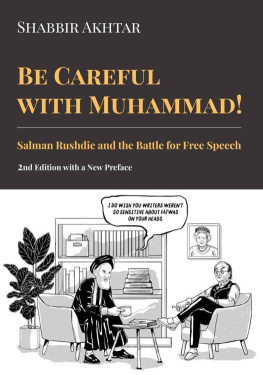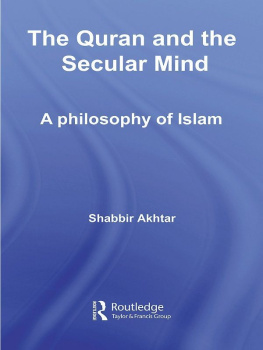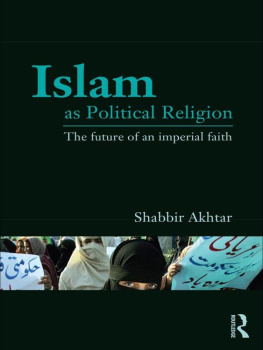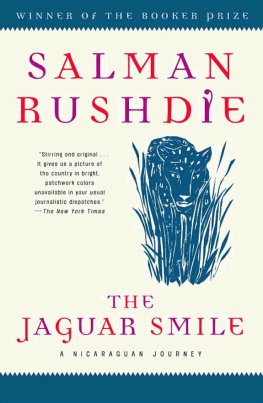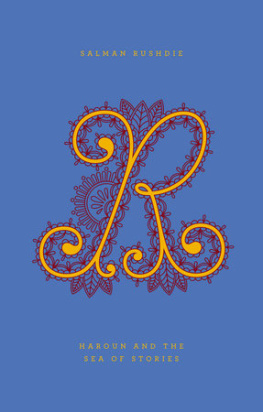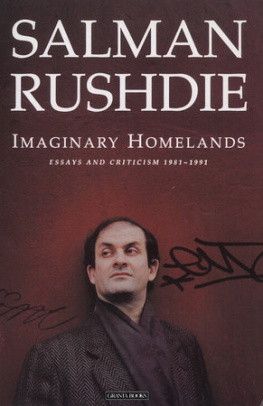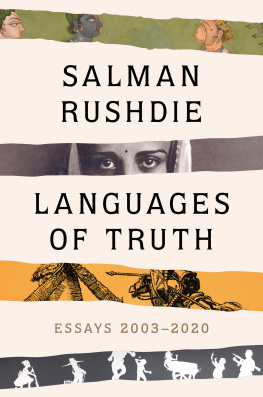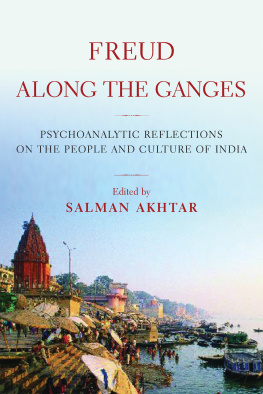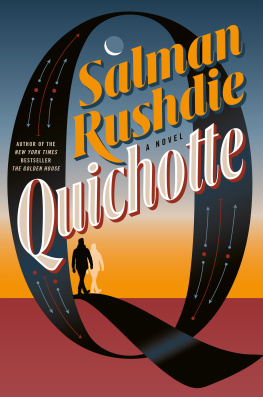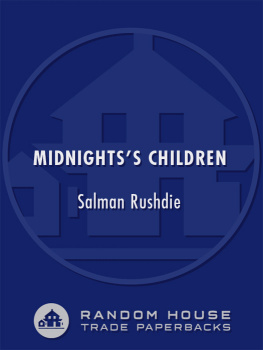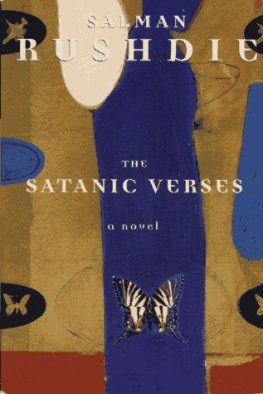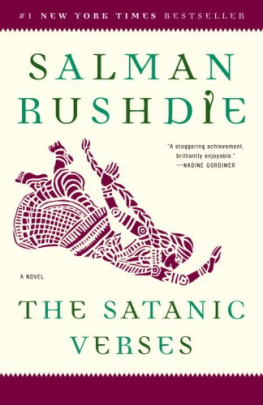Shabbir Akhtar - Be Careful with Muhammad!: Salman Rushdie and the Battle for Free Speech
Here you can read online Shabbir Akhtar - Be Careful with Muhammad!: Salman Rushdie and the Battle for Free Speech full text of the book (entire story) in english for free. Download pdf and epub, get meaning, cover and reviews about this ebook. year: 2021, publisher: UNKNOWN, genre: Religion. Description of the work, (preface) as well as reviews are available. Best literature library LitArk.com created for fans of good reading and offers a wide selection of genres:
Romance novel
Science fiction
Adventure
Detective
Science
History
Home and family
Prose
Art
Politics
Computer
Non-fiction
Religion
Business
Children
Humor
Choose a favorite category and find really read worthwhile books. Enjoy immersion in the world of imagination, feel the emotions of the characters or learn something new for yourself, make an fascinating discovery.
- Book:Be Careful with Muhammad!: Salman Rushdie and the Battle for Free Speech
- Author:
- Publisher:UNKNOWN
- Genre:
- Year:2021
- Rating:3 / 5
- Favourites:Add to favourites
- Your mark:
- 60
- 1
- 2
- 3
- 4
- 5
Be Careful with Muhammad!: Salman Rushdie and the Battle for Free Speech: summary, description and annotation
We offer to read an annotation, description, summary or preface (depends on what the author of the book "Be Careful with Muhammad!: Salman Rushdie and the Battle for Free Speech" wrote himself). If you haven't found the necessary information about the book — write in the comments, we will try to find it.
Be Careful with Muhammad!: Salman Rushdie and the Battle for Free Speech — read online for free the complete book (whole text) full work
Below is the text of the book, divided by pages. System saving the place of the last page read, allows you to conveniently read the book "Be Careful with Muhammad!: Salman Rushdie and the Battle for Free Speech" online for free, without having to search again every time where you left off. Put a bookmark, and you can go to the page where you finished reading at any time.
Font size:
Interval:
Bookmark:
2nd Edition with a New Preface
SHABBIR AKHTAR

Salman Rushdie and The Battle for Free Speech
Copyright Shabbir Akhtar 1989, 2020
Publisher and Distributor: BIJAK Publishing, Jakarta, IndonesiaProject Manager: Anggita Dini Wulandari
Editor: Nageeb Gounjaria
Typesetting and Layout: Adhe Puspa Timika
Cartoonist: Adan Fajar a.k.a. Maruciel
Printed in Indonesia
Akhtar, Shabbir,
for Free Speech, Jakarta: Bijak, 2020, pp. 187.
ISBN: 978-623-94742-0-1 (ebk) | 978-623-94742-1-8 (pbk) | 978-623-94742-2-5 (hbk)
All rights reserved. No part of this book may be reprinted or reproduced orutilised in any form or by any electronic, mechanical, or other means, nowknown or hereafter invented, including photocopying and recording, or in any information storage or retrieval system, without permission in writing from the publishers, except in the case of brief quotations embodied in critical articles or reviews.
This second revised edition with a New Preface is published by arrangementwith the author only. For publishing excerpts and longer quotations,address all inquiries to info@bijakpublishing.com
The views and opinions expressed in this book are the authors own and do not necessarily reflect the editorial stance of BIJAK Publishing.First published in Great Britain in 1989 as
by Bellew Publishing Company Ltd., London, United KingdomISBN: 0 947 792 27 9 (pbk)
www.bijakpublishing.com
To Iqbal Nasim, Nasir fi sabil Allah
Believers! Be resolute in the doing of justice, as witnesses to God, even though it be against your own souls, your parents or yourrelatives, and whether it concerns the rich or the poor. For in the eyes of God neither wealth nor poverty carry any weight. Do notfollow your own desires and thereby pervert the truth. Yet if you decide to act in bias and prejudice, God is well aware of the things you do.
Quran, e Women, v. 135Only highly oensive language, bordering on outright obscenity, has been censored by bowdlerisation of key words. This is to protectMuslim sensibilities. Equally, however, this essayomits the devotional formula, based on Q:33.56, which orders Muslims to mention Peace be upon him after every mention of the name Muhammad.
Arabic words that have been naturalised into the English language are not italicised.ContentsvPreface to the 2nd Edition viiPreface to the 1st Edition xxxvii
Chapter 1Chapter 2
Chapter 3
Chapter 4
Chapter 5
Epilogue
v
Salman Rushdie published e Satanic Verses in autumn 1988 and I published my response exactly a year later. My books title was inspired by the cautionary Persian proverb: Ba khuda diwana basho, ba Muhammad hoshyar. Take liberties with God but be careful with Muhammad! Rushdies challenge became a strategic concern for Muslims and equally for non-Muslims, especially Westerners. Like our current COVID-19 coronavirus pandemic, Rushdies bookand the Muslim response to it stimulated fervent debate at all levels of Western society, whether literate or relatively uncultured. Its long-term consequences have proved salutary and beneficial but also regrettably influential and deleterious for the Muslim minoritys future coexistence inside Western liberal societies.
The British Muslim response to Rushdies book was acultural catalyst in the evolution of civic and political modernity forthe Muslim minority throughout Europe, though not in America
viiwhose Muslim minority, an isolated fragment of the global ummah, barely reacted to the notorious assault on the noble Prophet and the message he brought. In the United Kingdom, it was a clash of two principles principles embedded in the two cultures. The conflictwas between afanatical application of the otherwise morallyadmirable principle of free speech, shared in its proper form by both parties, and, for the peoples of Islam, the opposed principle of the unnegotiable honour of the Prophet of Islam. This clash created adeadlock. In America, there was virtually no such conflict between American society and its Muslim citizens since the melting pot of monocultural society honours an only God: Mammon, the deity of advanced capitalism. In multicultural Europe, however, we care aboutmaterial well-being but also about spiritual and moral values thattranscend mere comfort.
In this retrospective bifocal glance, I survey the causes, countless intended and unintended eects, and predict the future consequences of the Salman Rushdie aair as it has continued to unfold for some thirty years. It is a form of the Cold War, but notbetween communists and capitalists, members of the same Western family, but rather between Islam and liberal secularism, with the latter allied to a capitalist Christian humanism. It is a love triangle involving Europes two oldest rivals for the hand of grace, Christianityand Islam. Europe has seen two sectarian theocratic wars, two ThirtyYears Wars, originallyfrom 1618-48, the acrimonious Catholic- Protestant conflict which was terminated by the Peace of Westphalia(1648). Between 1914 and 1945, the world witnessed two European wars with global reach owing to Europes imperial adventurism supported by its Christian heritage. Was the Rushdie aair the opening shot of anew Thirty years war, only this time ongoing with no sight of a truce?
Only a rash historian would assess recent, as opposed to remote, history. However, the principled and brave, the determined if desperate, Muslim response to the Anglo-Rushdie provocation became, unintentionally, the political baptism of the British Muslims.
viii
They emerged out of the water, breathing and flourishing into adecidedly and proudly Muslim self-identity, rather than existing simply, in their opponents eyes, as Asian or black opponents of white racism and privilege, including class privilege, a crucial factorin understanding Rushdies self-image.
Be Careful with Muhammad! records a political campaign. Itwas initially considered for publication by famous publishers, such as Faber and Faber, but such oers were dropped after I won the Institute of Contemporary Art debate, against the passionatelypro-Rushdie writer Hanif Kureshi, in London in the summer of 1989. My book was finally published by a small non-Muslim house to avoid oending Rushdie and his powerful gang of allies in the publishing and broadcasting worlds. So much for the Muslim authors right to free speech. This work is republished here, onlylightly revised since it is not a sequel but a reprint. My message in this book is that moral progress in cultures is not achieved through distorting theirhistoryand self-image, and substituting acaricature, a false and insulting revisionist account of their origins as a faith and civilisation. Religions also have communal self- esteem. Their adherents can be wounded.
The Race Relations Act 1976 already contained the so-called section 11 funding for ethnic minority needs, including remedial education and language acquisition for immigrants. The British governmentwas proactive; ministers wanted to address such needs within the state system of education. Precisely two decades before Rushdie published his infamous attack, Enoch Powell, the politician representing Wolverhampton, gave a speech predicting racial tensions in the new multiracial Britain. The worst of what he predicted never came to pass and many thought that ProphetEnoch from the Midlands was a false prophet, with no honour in his native land and party. For while he was right to be pessimistic, he got his prophecy wrong. Powells own speech, ironically, aborted his own prophecy since the government took several actions, including dismissing the prophet from his post.
Font size:
Interval:
Bookmark:
Similar books «Be Careful with Muhammad!: Salman Rushdie and the Battle for Free Speech»
Look at similar books to Be Careful with Muhammad!: Salman Rushdie and the Battle for Free Speech. We have selected literature similar in name and meaning in the hope of providing readers with more options to find new, interesting, not yet read works.
Discussion, reviews of the book Be Careful with Muhammad!: Salman Rushdie and the Battle for Free Speech and just readers' own opinions. Leave your comments, write what you think about the work, its meaning or the main characters. Specify what exactly you liked and what you didn't like, and why you think so.

